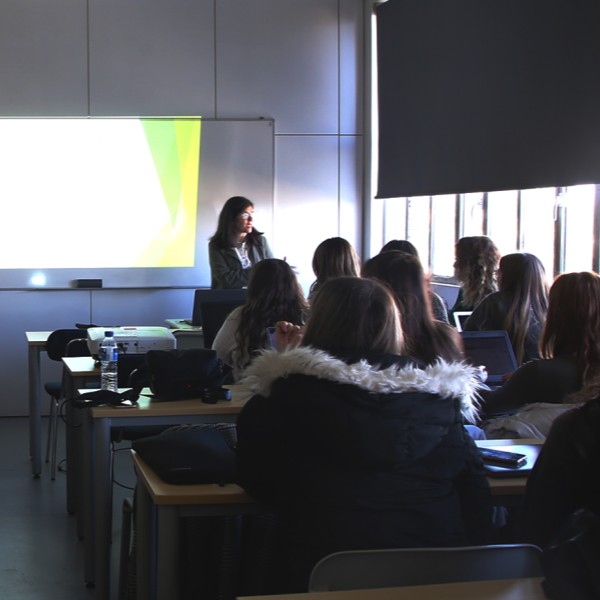
Analysing and Reflecting on Social Policies and Interculturality
The open class focussed on the challenges of social intervention in Portugal
08.03.24 - 12h05Lusófona University - Centro Univeristário Porto, promoted another enriching open class, with the aim of analyzing and reflecting on social policies and interculturality, with an emphasis on the challenges of intervention ;social in Portugal.
The guest speaker was Professor Hélia Bracons, Director of the Degree in Social Services at Universidade Lusófona - Centro Universitário de Lisboa.
Professor Helia Bracons began her presentation by sharing her vast professional experience and highlighted the importance of developing sensitivity and care for others in the field of Social Service. She stressed that & eacute; It is crucial that the assistant does not limit himself to the basic needs of the person served, but also dedicates himself to identifying broader and more complex aspects, such as the origin and individual characteristics of each person, promoting an intervention more effective and empathetic.
Hélia Bracons also warned about the difference between multiculturalism and interculturality. While multiculturalism refers to coexistence of several cultures in a society, without a direct emphasis on interaction, interculturality represents a process of interaction, exchange and meaningful dialogue between different cultures, seeking understanding and harmonious coexistence.
As the main public bodies responsible for serving and informing immigrants in Portugal, he mentioned the High Commission for Migrations (ACM) and the Foreigners and Borders Service (SEF). Both promote integrated reception and the resolution of legal procedures, establishing privileged partnerships with entities operating in close proximity contexts. The ACM, in turn, focuses on several axes, from immigrant integration policies to immigration. incentives and support for the return of citizens to their countries of origin.
The importance of support in translation and interpretation for bureaucratic and judicial matters was also highlighted, providing immigrants with knowledge of the laws and their application, with many services are already available. providing free legal support offices.
The open class did not fail to address the issue of human rights, emphasizing that these rights are based on the promotion and integration of people in an increasingly globalized and diverse world . Coexistence and sharing common projects in a diverse world are fundamental, with respect for the right to freedom. difference combined with the idea of dignity and human rights essential for the future.
Related Courses
Other News
- Faculty of Law and Political Science welcomes new students
- Social Work students begin their journey with a welcome and integration session
- Bilateral Trade Opportunities between Brazil and Portugal under Discussion
- Lecturer premieres film in national cinemas
- Study on the Need for Informal and Formal Caregivers in the City of Porto










